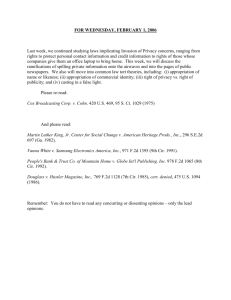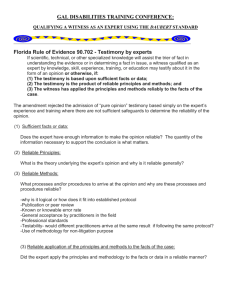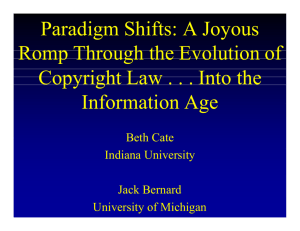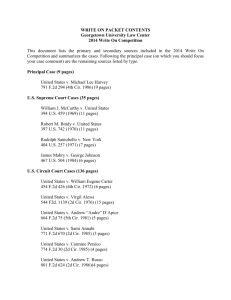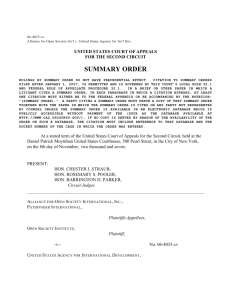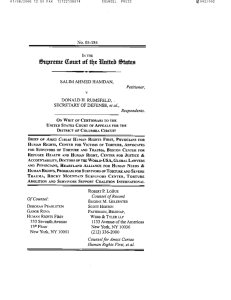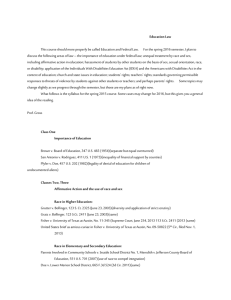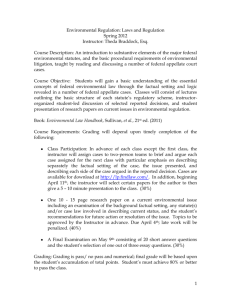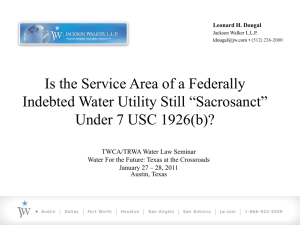Michigan-Hosford-Meyers-Levy-2nc-GSU
advertisement
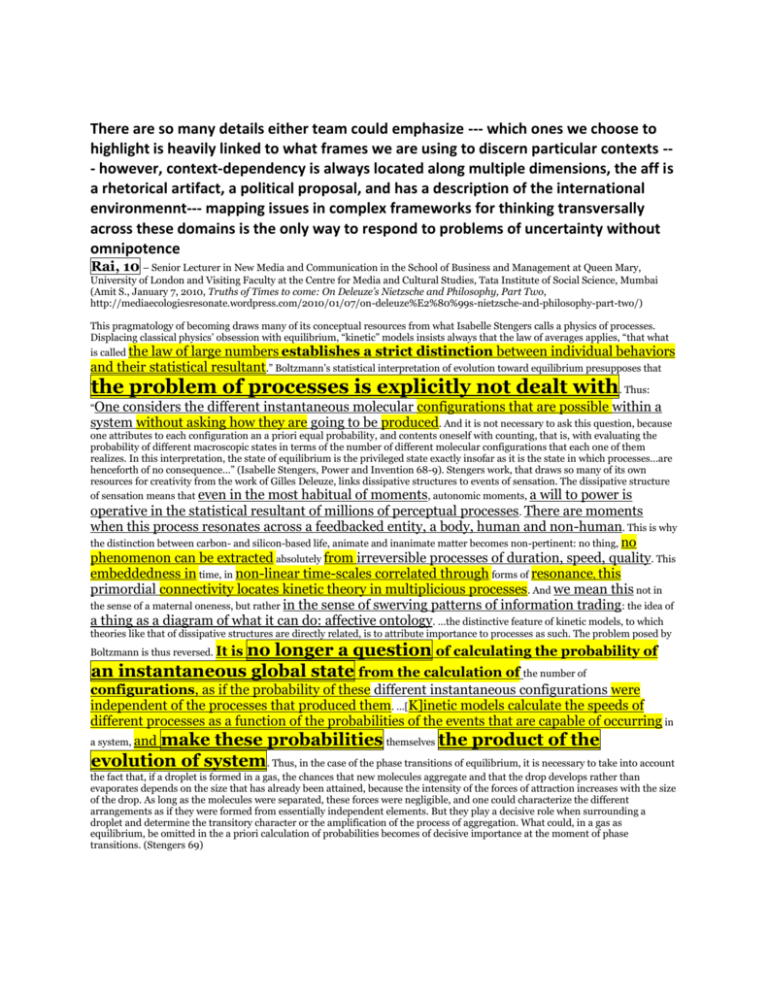
There are so many details either team could emphasize --- which ones we choose to highlight is heavily linked to what frames we are using to discern particular contexts -- however, context-dependency is always located along multiple dimensions, the aff is a rhetorical artifact, a political proposal, and has a description of the international environmennt--- mapping issues in complex frameworks for thinking transversally across these domains is the only way to respond to problems of uncertainty without omnipotence Rai, 10 – Senior Lecturer in New Media and Communication in the School of Business and Management at Queen Mary, University of London and Visiting Faculty at the Centre for Media and Cultural Studies, Tata Institute of Social Science, Mumbai (Amit S., January 7, 2010, Truths of Times to come: On Deleuze’s Nietzsche and Philosophy, Part Two, http://mediaecologiesresonate.wordpress.com/2010/01/07/on-deleuze%E2%80%99s-nietzsche-and-philosophy-part-two/) This pragmatology of becoming draws many of its conceptual resources from what Isabelle Stengers calls a physics of processes. Displacing classical physics’ obsession with equilibrium, “kinetic” models insists always that the law of averages applies, “that what is called the law of large numbers establishes a strict distinction between individual behaviors and their statistical resultant.” Boltzmann’s statistical interpretation of evolution toward equilibrium presupposes that the problem of processes is explicitly not dealt with. Thus: “One considers the different instantaneous molecular configurations that are possible within a system without asking how they are going to be produced. And it is not necessary to ask this question, because one attributes to each configuration an a priori equal probability, and contents oneself with counting, that is, with evaluating the probability of different macroscopic states in terms of the number of different molecular configurations that each one of them realizes. In this interpretation, the state of equilibrium is the privileged state exactly insofar as it is the state in which processes…are henceforth of no consequence…” (Isabelle Stengers, Power and Invention 68-9). Stengers work, that draws so many of its own resources for creativity from the work of Gilles Deleuze, links dissipative structures to events of sensation. The dissipative structure of sensation means that even in the most habitual of moments, autonomic moments, a will to power is operative in the statistical resultant of millions of perceptual processes. There are moments when this process resonates across a feedbacked entity, a body, human and non-human. This is why the distinction between carbon- and silicon-based life, animate and inanimate matter becomes non-pertinent: no thing, no phenomenon can be extracted absolutely from irreversible processes of duration, speed, quality. This embeddedness in time, in non-linear time-scales correlated through forms of resonance, this primordial connectivity locates kinetic theory in multiplicious processes. And we mean this not in the sense of a maternal oneness, but rather in the sense of swerving patterns of information trading : the idea of a thing as a diagram of what it can do: affective ontology. …the distinctive feature of kinetic models, to which theories like that of dissipative structures are directly related, is to attribute importance to processes as such. The problem posed by longer a question of calculating the probability of an instantaneous global state from the calculation of the number of Boltzmann is thus reversed. It is no configurations, as if the probability of these different instantaneous configurations were independent of the processes that produced them. …[K]inetic models calculate the speeds of different processes as a function of the probabilities of the events that are capable of occurring in a system, and make these probabilities themselves the product of the evolution of system . Thus, in the case of the phase transitions of equilibrium, it is necessary to take into account the fact that, if a droplet is formed in a gas, the chances that new molecules aggregate and that the drop develops rather than evaporates depends on the size that has already been attained, because the intensity of the forces of attraction increases with the size of the drop. As long as the molecules were separated, these forces were negligible, and one could characterize the different arrangements as if they were formed from essentially independent elements. But they play a decisive role when surrounding a droplet and determine the transitory character or the amplification of the process of aggregation. What could, in a gas as equilibrium, be omitted in the a priori calculation of probabilities becomes of decisive importance at the moment of phase transitions. (Stengers 69) Actors prioritize diplomacy over aggression more frequently when they recognize the limits of knowledge and reflexively analyze their own habitual behavior – voting neg is healthy for international politics Kavalski, 07 – (Emilian, “The fifth debate and the emergence of complex international relations theory: notes on the application of complexity theory to the study of international life,” Cambridge Review of International Affairs Volume 20, Issue 3, p. 435-454) As Beaumont (1994, 145) has quipped, there is something paradoxical about concluding an article on complexity, since the sequential unfolding of uncertainties, dilemmas and paradoxes works against focusing analysis and drawing neat conclusions. Yet, the perception of complexity does not automatically imply a ‘“defeatist” attitude’ (LaPorte 1975, 328). Therefore, this overview of the application of CT to world politics calls us to start thinking about the study of international life from a complex systems perspective. The proponents of CIR theory maintain that complexity cannot be regulated (and, thereby, structured through methodological tools), but that it is experienced. Such an assertion confronts the conventional wisdom of IR with the patterns of complexity: the former is premised on the separation of the ‘objects of knowledge from their contexts’ and the latter, while distinguishing between the objects, ‘interconnects’ them (Browaeys and Baets 2003, 335). The emergent attempts at comprehending the complexity of international life, therefore, have initiated the fifth debate in IR. The claim here is that this development has important emancipatory (and, thereby, policy) implications. Such a prospect has been made possible through the ontological innovation of CIR theory—the envisioning of social science imagination as a ‘system of interference’ that makes particular forms of the social real while foreclosing others (Law and Urry 2004, 397). On the one hand, CIR theory insists that complex systems thinking ‘should compel the strongest states to act the complexity (or what he international life has made it possible for a wide range of individual and collective actors to put pressure on ‘rights-insensitive states’ across all the dimensions of state capabilities that have in ways that reduce the vulnerability of the weakest’ (Snyder and Jervis 1993, 20). Rosenau (2003, 330), for instance, argues that calls ‘fragmegration’) of previously been impervious to demands on behalf of human rights. This acknowledges that activism generates its own countervailing forces that assume a continuing expansion of the analytical skills that enable people to alter their priorities across whole systems and alter habit-driven behaviour subsystems (that is, ) as they discover that ‘the former cannot provide satisfying solutions to major problems and that the latter cannot contain low-intensity conflicts and maintain a satisfying degree of public order’ (Rosenau 1990, 457). Thus, in contrast to the reactionary stance of mainstream IR, CIR theory advocates an emancipatory agenda for a ‘new vision of politics that emphasises responsibility’ (Barnett 2005, made possible by the promise of ‘immanent self-ordering’ (Parfitt 2006, 424). On the other hand, several theoreticians have pointed out that the recognition of the complexity of international life diminishes the likelihood of recourse to force in world affairs —the suggestion is that the acknowledgement of the unpredictability and contradictions of international interactions as well as policies informed by CT should make foreign-policy-making more peaceful (Puente 2006; Suedfeld and Tetlock 1977). For instance, some have argued that policy-makers who recognize the unintended consequences of complexity indicate preferences for diplomacy over military confrontation (Raphael 1982; Wallace and Suedfeld 1988). For instance, the case of the 2003 invasion of Iraq points to the problem of reductionist decision-making—that is, even if the ‘rules of the game’ are completely known and understood at the local level, it might be impossible to predict regional/global outcomes; furthermore, the quandary of policy formulation based on parsimonious (simplifying) analysis is inherent rather than situational, because ‘planning based 115) CIR on predictions is not merely impractical; it is [also] logically impossible’ (Mathews et al 1999, 450). Such discussion of the emancipatory aspects of CIR theory is not intended as a distraction from some of its shortcomings. Instead, the suggestion is that these flaws necessitate further exploration of the CIR framework as it is alone in taking the discontinuities of international life seriously. This article contends that the application of the complexity paradigm to the study of international life would refocus the study of global affairs. Returning to the words of Herbert Wells in the epigraph of this article, the promise of CIR theory is that it can help lift ‘the darkest shadow’ from the totalizing discourses of terrorism and fear that seem to pervade current world politics by volunteering ‘imaginative thinking’ on the complexity of human societies and their interactions. The mechanism for evolution of such systems --- Your ballot is the currency of debate – vote for ________ political salience Ansary, 05 – (Alex, 12/29/05, Mass Mind Control; Through Network Television; Are Your Thoughts Your Own?, http://www.rense.com/general69/mass.htm) Some people are wrong about 5% of the time. Some are wrong most of the time. I wish I was wrong all the time. A lot of people deal it's the viewers, the consumers and all the other little votes called dollars that helped this oligarchy system lay its concrete foundation in our backyards. We must recognize the truth about why the system is flawed and enslaving us if we wish to beat it. The most important solution to fighting this type of brainwashing with these intense realities, by asking me rhetorically, "What is the solution, smart guy?" Remember, and mind control is to start with ourselves and our own awakening in the smaller things. In this case, it's brainwashing but after awhile we break Outside the Box and begin venturing outside the system and into unknown terrain. Fighting with people and forcing them to understand 'our truth' is not a solution. If our collective free will created this nightmare, than only our collective free will change it. The battle begins in the heart and mind of the beholder, and then extends outward from there, only to those open to the information . There are no brinks in this process—a revolutionary future can only come about through a series of small steps that work through a process of becoming possible Deleuze and Parnet, 87 (Gilles and Claire, dialogues II, p. 146-147) All this constitutes what can be called a right to desire. It is not surprising that all kinds of minority questions – linguistic, ethnic, regional, about sex, or youth – resurge not only as archaisms, but in up-to-date revolutionary forms which call one more into question in an entirely immanent manner both the global economy of the machine and the assemblages of national States. Instead of gambling on the eternal impossibility of the revolution and on the fascist return to a war-machine in general, why not think that a new type of revolution is in the course of becoming possible , and that all kinds of mutating, living machines conduct wars, are combined and trace out a plane of consistence which undermines the plane of organization of the World and the States?9 For, once again, the world and its states are no more masters of their plane than revolutionaries are condemned to the deformation of theirs. Everything is played in uncertain games, ‘front to front, back to back, back to front . . .”. The question of the future of the revolution is a bad question because, in so far as it is asked, there are so many people who do not become revolutionaries, and this is exactly why it is done, to impede the question of the revolutionary-becoming of people, at every level, in every place. These decisions to prioritize different sets of values are capable of creatively altering the fabric of political and social realities – in other words, which arguments you choose to verify as superior with your ballot has a profound effect on the existential concoction of the current socius Guattari, 89 (Felix, The Three Ecologies, p. 43) It must also be stressed that this promotion of existential values and the values of desire will not present itself as a fullyfledged global alternative. It will result from widespread shifts in current value systems and from the appearance of new poles of valorization . In this respect it is significant that, over the last few years, the most spectacular social changes have resulted from precisely these kinds of long-term shifts; on a political level in the Philippines or Chile, for example, or on a nationalitary level in the USSR.78 In these countries, thousands of value-system revolutions are progressively percolating their way up through society and it is up to the new ecological components to polarize them and to affirm their importance within the political and social relations of force.
